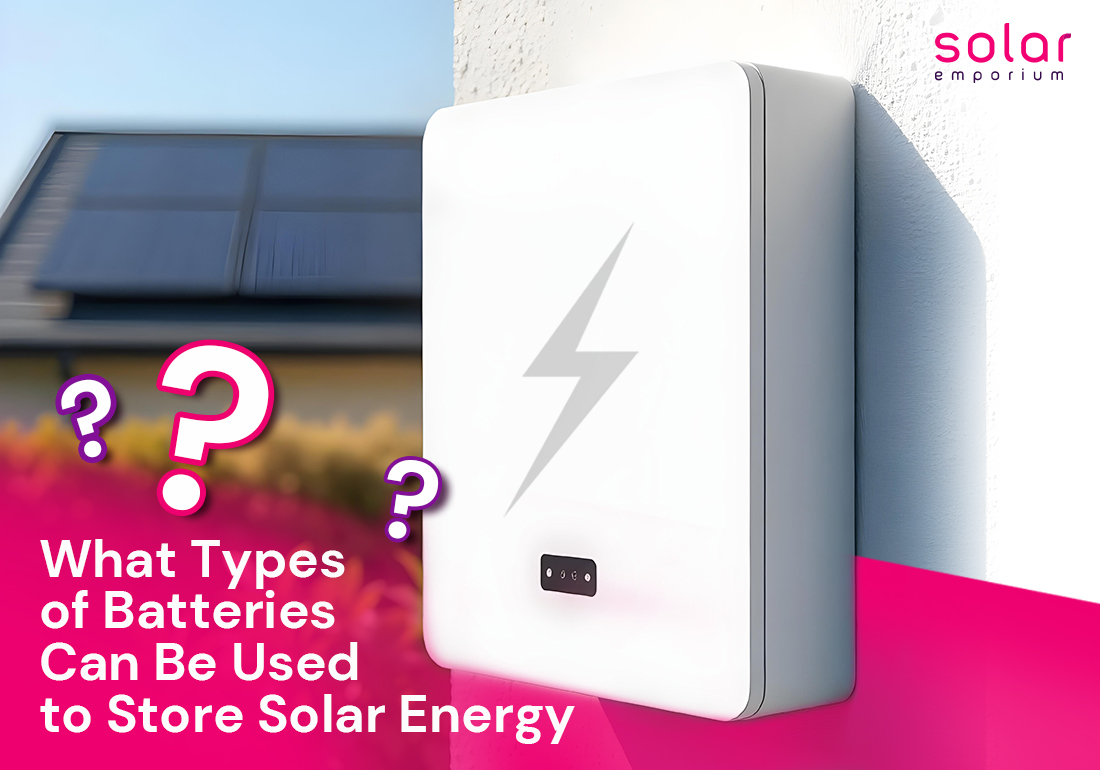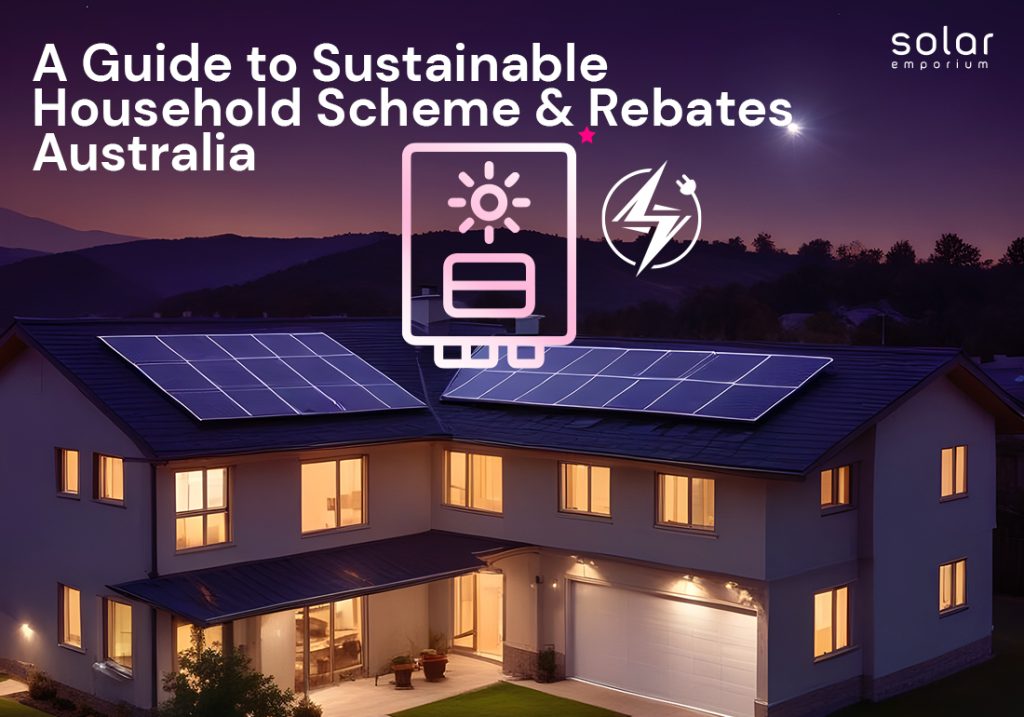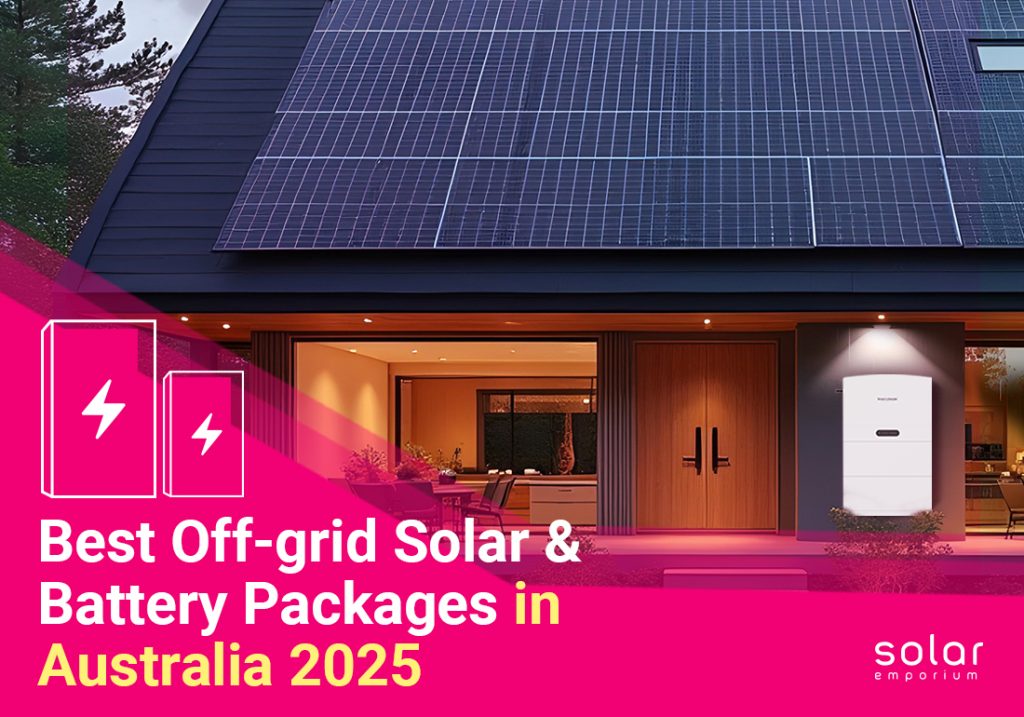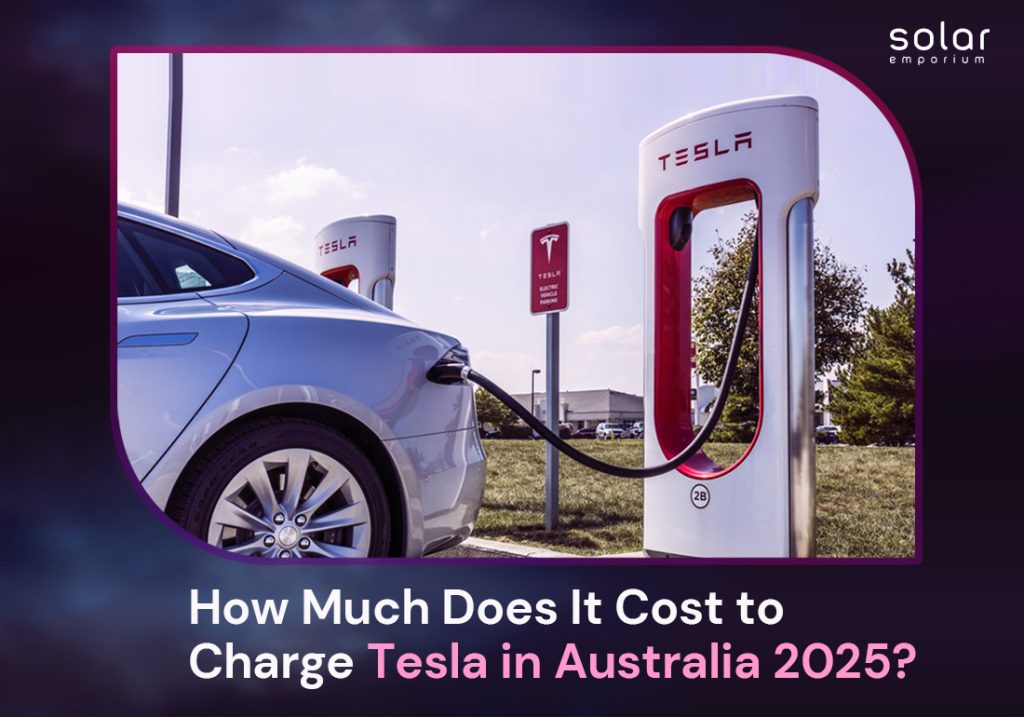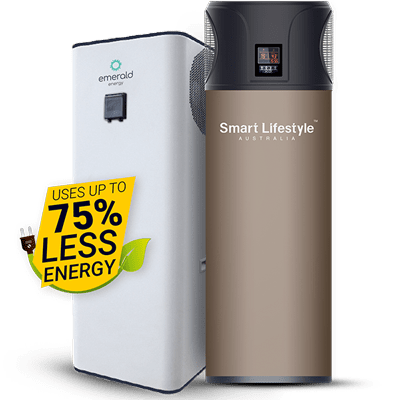Solar power has emerged as a leading solution for the rapidly escalating global demand for clean, renewable energy.
However, the sun doesn’t always shine, and solar panels cannot generate enough electricity during low light. So, when it comes to harnessing solar energy, choosing the right solar power batteries is essential.
Several types of batteries are designed to store solar energy. From traditional lead-acid to cutting-edge lithium-ion and innovative solid-state options, these solar batteries store excess energy generated during the day and make it available at night or on cloudy days.
If you are wondering what batteries are best and most efficient, this blog will explore the different types of batteries that can be used to store solar energy in Australia.
So, keep reading to learn more about the benefits of solar batteries and how to choose the best battery option for your needs!
Harnessing the Sun: Understanding Solar Batteries
Solar Batteries are specially designed to store energy from the sun during peak daylight hours and use it later during frequent power outages due to grid failure or extreme weather events.
When exposed to sunlight, solar panel systems generate a lot of electricity. So, if your solar system produces more energy than you need, you can store the excess energy in batteries for your own use instead of sending it back into the grid.
A home battery storage solution can provide you with a reliable backup, reduce your dependency on the grid, slash electric bills, and increase energy security.
Moreover, adding a battery to store solar energy can bring many environmental benefits. For example, battery storage reduces fossil fuel use, resulting in low carbon emissions and contributing more to Australia’s climate change goals.
Traditional Batteries vs. Solar Batteries: What Sets Them Apart?
People often ask: Can we use a regular battery to store solar energy? Well, the answer is “no,” we can’t.
While both types of batteries store power, they are intentionally designed for distinct applications and have several key differences.
Regular or traditional batteries are usually not manufactured to handle the high capacity and frequent charge cycles required for solar energy storage. Only specific solar batteries are optimized and designed to perform this task.
So, what are the main differences between traditional batteries and solar batteries?
Traditional batteries, used in everyday devices like remotes, toys, and flashlights, are typically small and disposable.
They have lower storage capacities and provide short-term power for low-energy devices. Additionally, they cannot endure frequent charging cycles like solar batteries.
In contrast, solar batteries have much higher storage capacity. They are designed to hold energy in kilowatt-hours (kWh) for extended periods to power a home or commercial building.
Solar batteries are durable and efficient for long-term use. They can handle repeated charging and discharging for years, bringing you substantial savings.
So, don’t you think investing in solar batteries has become essential to accelerate Australia’s sustainable energy transition? It is!
Different Types of Batteries Used to Store Solar Energy
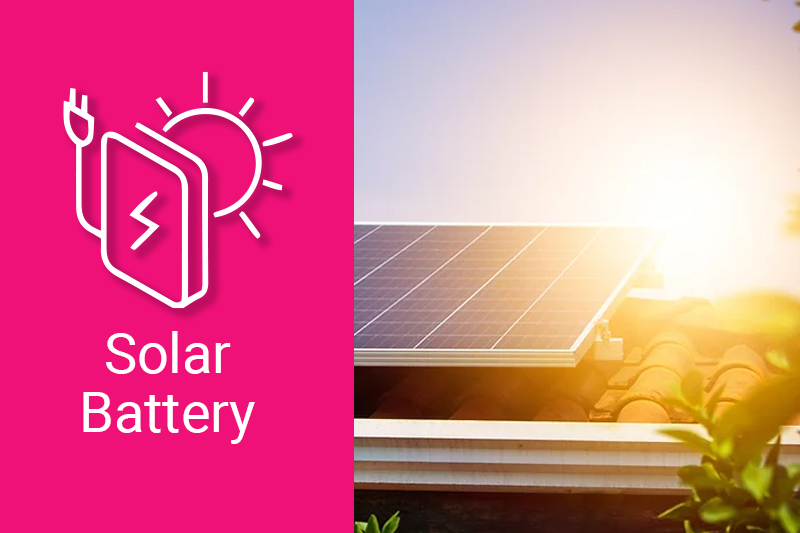
It is widely believed that Lithium Iron phosphate (LiFePO4) batteries are the best types of batteries for solar power storage due to their high energy density, efficiency, long lifespan, and eco-friendly nature.
However, don’t forget that besides lithium-ion batteries, other battery technologies also offer efficient performance at an affordable price.
So, let’s have a detailed look at the 4 different types of solar batteries in the following section:
Lead Acid Batteries
Lead-acid solar batteries are considered one of the oldest and most established energy storage systems. They are cheaper than the other batteries, which makes them popular, for people on a budget.
These batteries can be a reliable option ensuring energy freedom for people living off-grid or underprivileged areas with unstable grid connections.
However, nowadays, people find these batteries less attractive due to their low DoD (50-60%) and shorter lifespan of 5 to 10 years.
Another reason people switch their battery storage preferences is the emergence of new technologies and battery management systems that are more efficient, long-lasting, and robust.
Advantages of Lead-Acid Batteries
- Lower initial cost as it is cheaper than lithium-ion batteries.
- Lead-acid batteries have been used in various applications for over a century, which makes them safe and reliable.
- Lead-acid batteries are recyclable and can be reused for many applications.
- They are temperature-adaptive, so they can withstand extreme temperatures.
Disadvantages of Lead-Acid Batteries
- Shorter Lifespan that lasts between 3 and 5 years.
- Lower Efficiency with an efficiency rate of around 70-80%.
- Large size and heavy weight make it bulkier.
- Installation can be more challenging.
- Requires regular maintenance, such as checking electrolyte levels.
Lithium-ion Batteries
Most solar battery manufacturers prefer lithium-ion batteries for several reasons. These batteries can be charged faster, provide extensive power backup, and have high energy density.
Popular batteries, such as the Tesla Powerwall 3, BYD, and Sonnen, also use lithium-ion batteries because they are compact, durable, and highly efficient.
By storing excess electricity for backup power and accounting for 92% of the global electrochemical energy storage installed capacity, they occupy a dominant position in the solar storage industry.
There are 4 main lithium-ion types of battery often used for large-scale solar battery storage applications:
- Lithium Manganese Oxide (LMO)
- Lithium Nickel Manganese Cobalt Oxide (NMC)
- Lithium Nickel Cobalt Aluminum Oxide (NCA)
- Lithium Iron Phosphate (LFP)
Advantages of Lithium-ion Solar Battery
- Very high energy density.
- 80–90% charge or discharge efficiency.
- Low maintenance fee.
- Can perform optimally within the -20 to 60°c temperature range.
- Use new innovative technology with better storage capacity.
- Smaller, sleek, lighter, and longer-lasting.
Disadvantages of Lithium-ion Batteries
- It is more expensive than lead acid or other batteries.
- Overcharging increases the risk of thermal explosion.
- Require special installation.
- These batteries have overheating issues.
Nickel Cadmium Batteries
Nickel-cadmium (NiCd) batteries are also rechargeable solar batteries that are known for reliability, long cycle life, and ability to operate in extreme temperatures.
Although they are less popular for residential areas than lead-acid or lithium-ion batteries, people find them valuable for large-scale applications such as utility solar energy storage.
Advantages of Nickel Cadmium Batteries
- Offers excellent backup during extreme conditions.
- Incredible longevity of up to 20 years or longer.
- Has high discharge capabilities of 80%–100%
- Durable and requires moderate maintenance.
- Works efficiently in extreme temperature
- Great for industrial setups.
Disadvantages of Nickel Cadmium Batteries
- Due to self discharging, it loses 10–20% of its charge during unused periods.
- Not environmentally friendly.
- Release toxic substances when disposed of or recycled.
- Not suitable and available for residential places.
Flow batteries
Flow batteries are rechargeable batteries that use liquid electrolytes to generate electricity. They are a unique option for large-scale energy storage.
These batteries are more commonly used in commercial and industrial solar installations, but recently, they’ve also gained traction as a residential energy storage option.
Advantages of Flow Batteries
- Versatile as storage capacity can be customized
- Provide satisfactory efficiency of 75-85%
- Tremendous lifespan of 20+ years
- Improved safety with nontoxic and nonflammable components.
- Ensures 100% depth of discharge.
- Serve better in large-scale systems.
Disadvantages of Flow Batteries
- Expensive for residential setups
- Large and bulky internal tanks are needed for chemical reactions.
- Requires high and regular maintenance.
- Needs ample space to store only a small amount of energy.
- Low charge and discharge rates.
How to Pick the Right Solar Battery for Your Needs
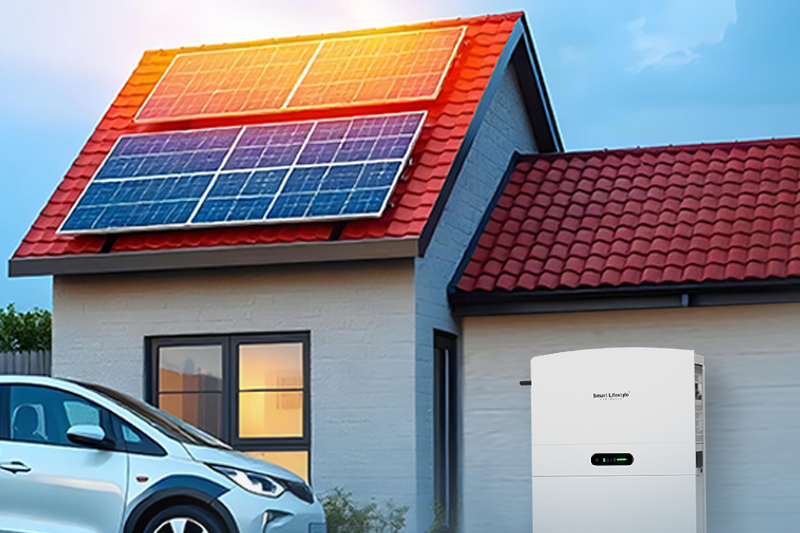
Choosing the perfect battery for your solar panel can be daunting these days. But with the right knowledge, you can make an informed decision.
Factors like battery capacity, lifespan, efficiency, and environmental impact play crucial roles in storing solar energy.
Understanding your energy needs and considering budget issues and other battery features will help you select the best battery to maximize your solar investment and ensure reliable energy storage.
So, here are some key aspects that will help you make a smart and informed purchase:
Storage Capacity
Energy Efficiency
Lifespan
Initial Cost
Even if the battery’s higher upfront cost initially seems burdensome, remember the long-term value it offers.
So, it’s wise to pick a battery that can store energy in less space, is long-lasting, and is highly efficient rather than opting for lucrative, cheaper, and less durable alternatives.
Compatibility
Not all batteries are compatible with your existing solar panel, as the technology is rapidly advancing. Before purchasing, ensure the battery is compatible with your solar panel system and inverter.
However, if you have issues determining the best match for your solar panel system, you can call Solar Emporium, Australia’s trusted solar product provider.
Power Your Home with the Best Solar Batteries in Australia
Imagine harnessing the sun’s power even when it’s not shining! With the right solar batteries, this dream has become a reality for homeowners across Australia.
Ready to take control of your energy needs and make the switch to smarter, greener energy? If so, let’s explore the best solar batteries available in Australia and find the perfect solution for storing and using solar energy.
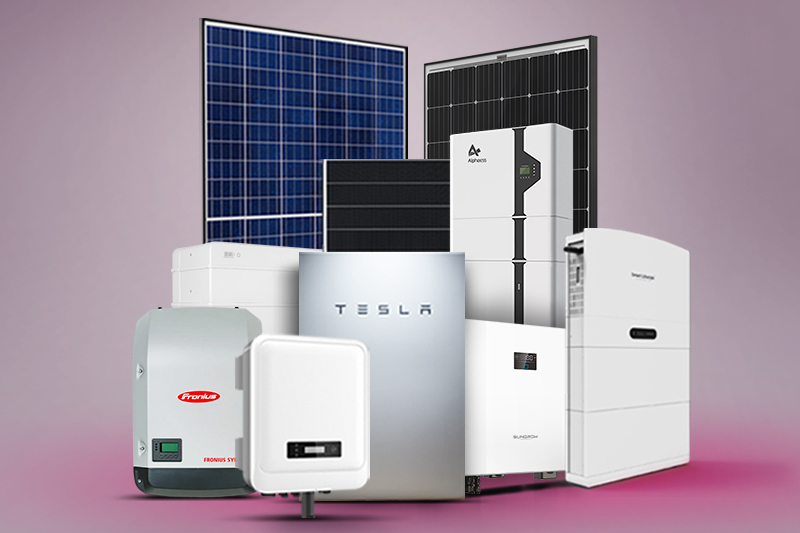
Here is a list of Australia’s top branded solar batteries that can confidently power your home!
Tesla Powerwall Battery: The Powerwall series is one of the most well-known and highly regarded solar batteries on the market.
With a 13.5 kWh capacity and a 10-year product warranty, Tesla Powerwall is a rechargeable battery system that can detect a power outage and provide backup power to your home if the grid fails.
Sungrow Battery: The Sungrow High Voltage LFP Solar Battery range features seven models to suit various energy needs. With prismatic LFP cells, 30A continuous charging and discharging, and multi-stage protection, these batteries provide exceptional safety and performance.
Alpha ESS Battery: Alpha ESS is a compact and highly efficient battery designed by German engineers that is compatible with new installations or additions to existing ones.
Don’t forget to check out Solar Emporium’s exciting solar storage packages and get a free solar quote today!
